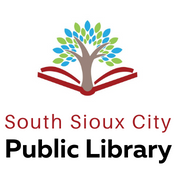In May 2014, at an elite prep school in New Hampshire called St. Paul’s School, eighteen-year-old Owen Labrie invited a fifteen-year-old female student to hang out. The meeting was part of a school tradition known as the senior salute, in which graduating seniors asked out younger students. The dates often led to sexual activity, anything from kissing to sex.
Labrie had a key to a mechanical room at the school and took the girl there. According to Labrie, the two kissed, fondled, and engaged in some sexual activity. He also claimed that their sexual activity was consensual.
However, the girl did not agree. She insisted that while she had initially agreed to some kissing and fondling, she had told Labrie to stop several times. He continued and went on to have sex with her. A few days later, the girl reported the encounter to the school. As required by law, the school reported the case to local law enforcement. After an investigation, prosecutors charged Labrie with felony sexual assault, along with several other charges.
The case against Labrie hinged on the issue of sexual consent. New Hampshire is one of the few states that does not require prosecutors to show force was used to prove sexual assault. At the 2015 trial, the girl testified that she felt like she was frozen during the sexual encounter. Labrie claimed that he believed she gave consent because she did not stop his advances.
After hours of deliberations, the jury found Labrie not guilty of the most serious charge, felony sexual assault. They convicted him on several lesser misdemeanor charges, including having sex with a minor and soliciting minors for sex using the internet. As punishment, Labrie served one year in a county jail. He also was required to register as a sex offender for the computer crime, which he later appealed.
In recent years, communities and schools across the world have been shocked by reports of rape and sexual assault. In a September 2015 survey by the Association of American Universities, more than 23 percent of female college students said they had experienced some form of unwanted sexual contact, which ranged from kissing and touching to rape. The contact occurred by force or threat of force, or while the women were incapacitated by alcohol or drugs. “The results warrant the attention and concern of everybody in our community,” said Drew Faust, president of Harvard University in 2015. “Sexual assault is intolerable, and we owe it to one another to confront it openly, purposefully, and effectively. This is our problem.”
As part of the effort to end sexual assault, awareness and understanding of sexual consent has become an increasingly important issue. Colleges and communities have begun to discuss sexual consent and redefine what exactly consent means. Many have started education programs to teach students about affirmative consent, healthy relationships, and respect, as well as what sexual assault is and how to report it. The social movement #MeToo became viral in 2017 and contributed to the heightened awareness of what defines sexual assault. A 2021 study conducted by the American Psychological Association (APA) indicated that there was a greater understanding among college students that certain past unwanted sexual experiences should be described as sexual assault.
To read or listen to this or other articles please visit the consent page on our Teen Health and Wellness database.






